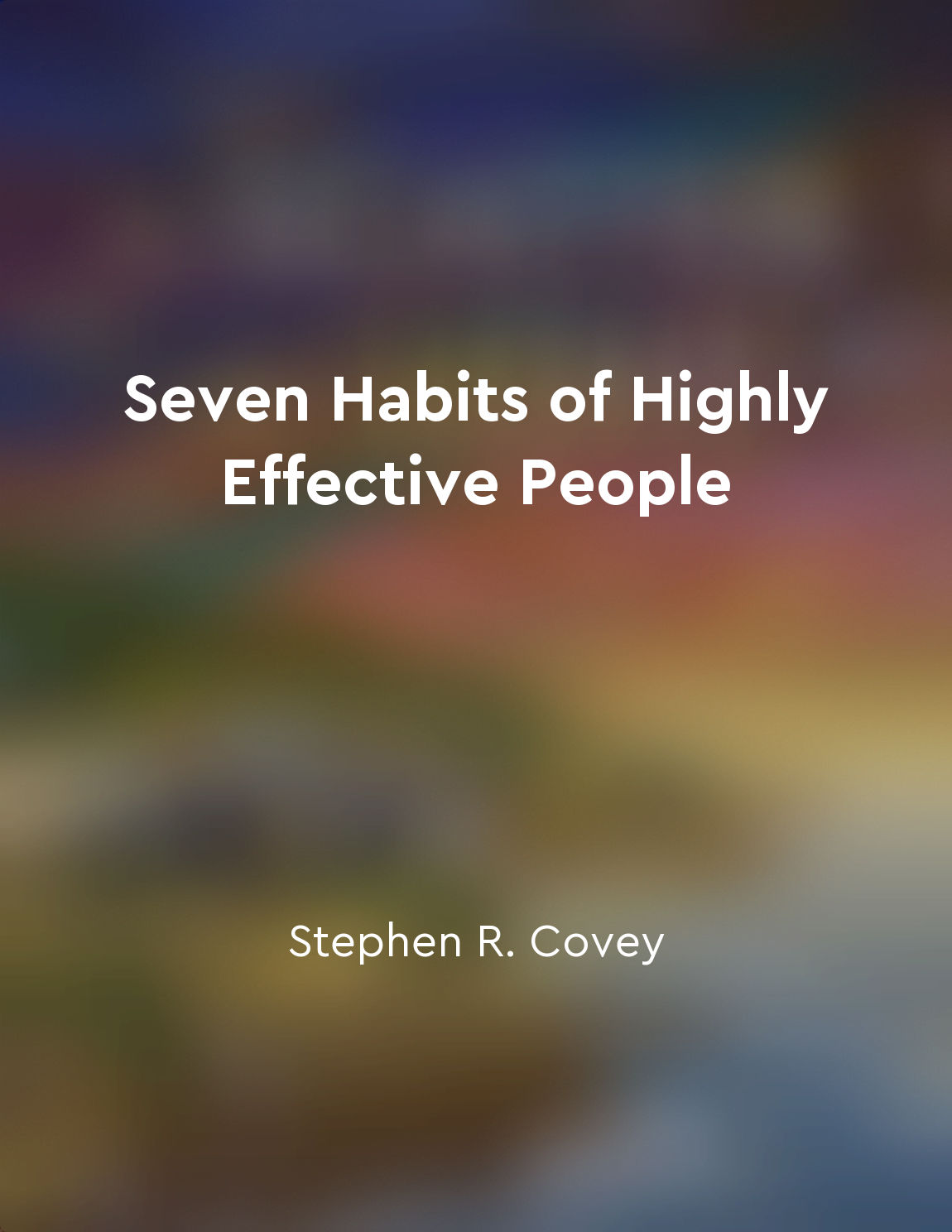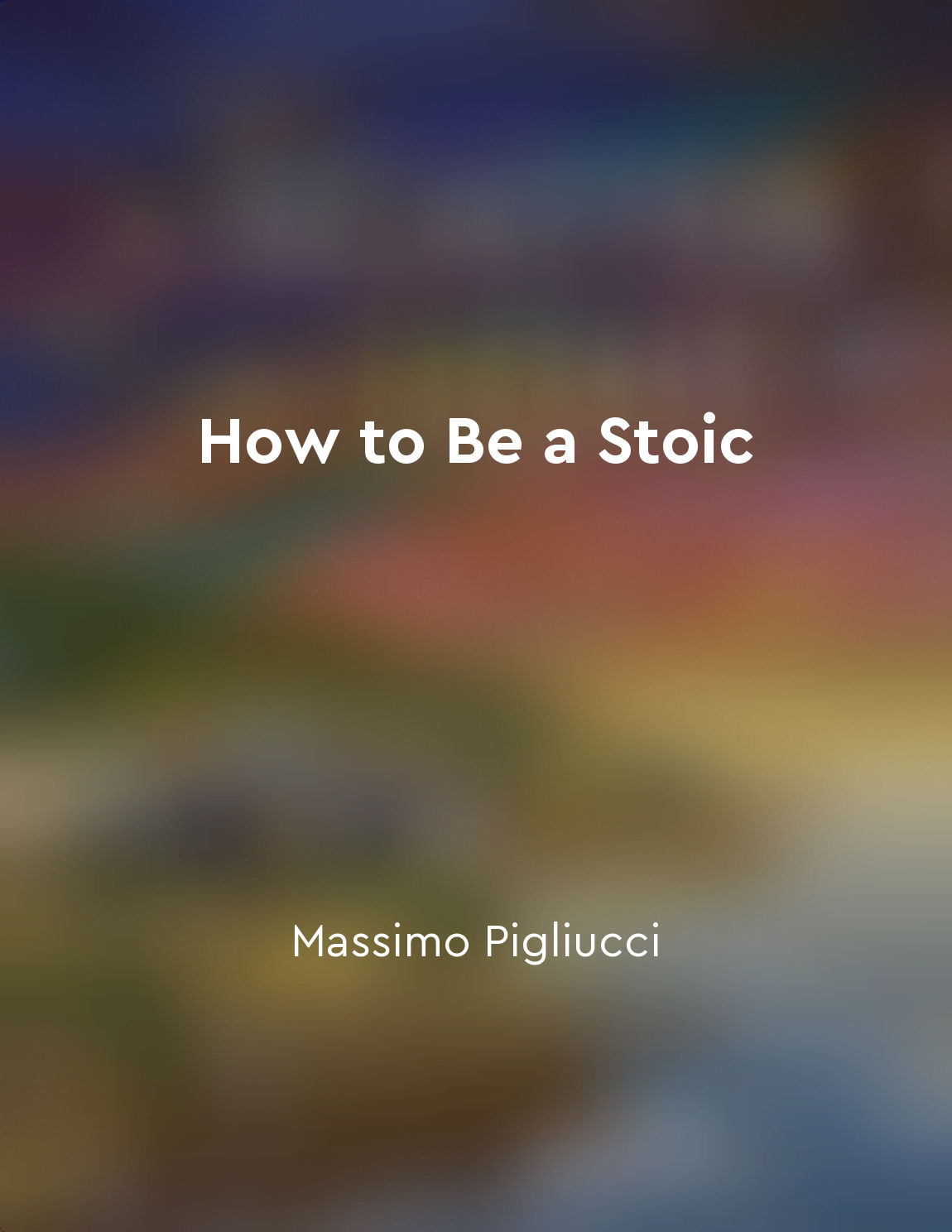Aristotle believed in moderation and finding balance in all aspects of life from "summary" of Aristotle's Way by Edith Hall
Aristotle emphasized the importance of moderation and balance in all aspects of life. He believed that excess and deficiency in any area could lead to harm or unhappiness. Instead, Aristotle advocated for finding the middle ground, or the "golden mean," where one could achieve harmony and fulfillment. In Aristotle's view, moderation was not about mediocrity or blandness, but about achieving the optimal balance. It required self-awareness, self-control, and the ability to make deliberate choices. By avoiding extremes and finding the middle path, one could navigate life's challenges with grace and wisdom. Aristotle applied the principle of moderation to various areas of life, including emotions, actions, and relationships. He believed that emotions should be felt in the right amount, at the right time, and for the right reasons. For example, courage was the balance between cowardice and recklessness, while generosity was the balance between stinginess and extravagance. In terms of actions, Aristotle stressed the importance of ethical behavior and virtuous conduct. He believed that one should strive to develop good habits and character traits through practice and self-discipline. By cultivating virtues such as courage, temperance, and justice, one could lead a fulfilling and morally upright life. In relationships, Aristotle advised against both isolation and excessive dependence on others. He believed that healthy relationships were built on mutual respect, trust, and reciprocity. By maintaining a balanced approach to social interactions, one could avoid conflicts, misunderstandings, and emotional distress.- Aristotle's philosophy of moderation and balance offered a practical guide for living a harmonious and well-rounded life. By embracing the golden mean and practicing virtue, one could cultivate a sense of inner peace, fulfillment, and flourishing.
Similar Posts

Creativity can solve scientific puzzles
In the world of science, puzzles are often waiting to be solved. These puzzles can be complex, requiring a deep understanding o...
Embrace adversity
The wise man will live as long as he ought, not as long as he can. He will mark in what place, with whom, and how he is to cond...

Seek first to understand, then to be understood
Many people do not listen with the intent to understand; they listen with the intent to reply. They are either speaking or prep...

Moral behavior is influenced by social norms
In every society, there are certain rules and expectations that govern how individuals should behave. These rules are not arbit...
Gratitude is the key to abundance
In order to truly understand the concept that gratitude is the key to abundance, we must first recognize the interconnectedness...
The Stoic philosophy is a practical guide to living a meaningful life
Margaret Graver's exploration of Stoicism in "Stoicism and Emotion" reveals a philosophy that offers practical guidance on how ...

Embrace death as a natural part of life
Death is a taboo subject in modern Western society. We avoid talking about it, thinking about it, or even acknowledging its exi...
Embrace challenges as opportunities for growth
Embracing challenges as opportunities for growth is a fundamental principle of Stoic philosophy, as articulated in Seneca's Let...
Embracing challenges and setbacks as opportunities for growth is essential
Aristotle believed that challenges and setbacks are not obstacles to be avoided but opportunities for growth. He saw them as es...

